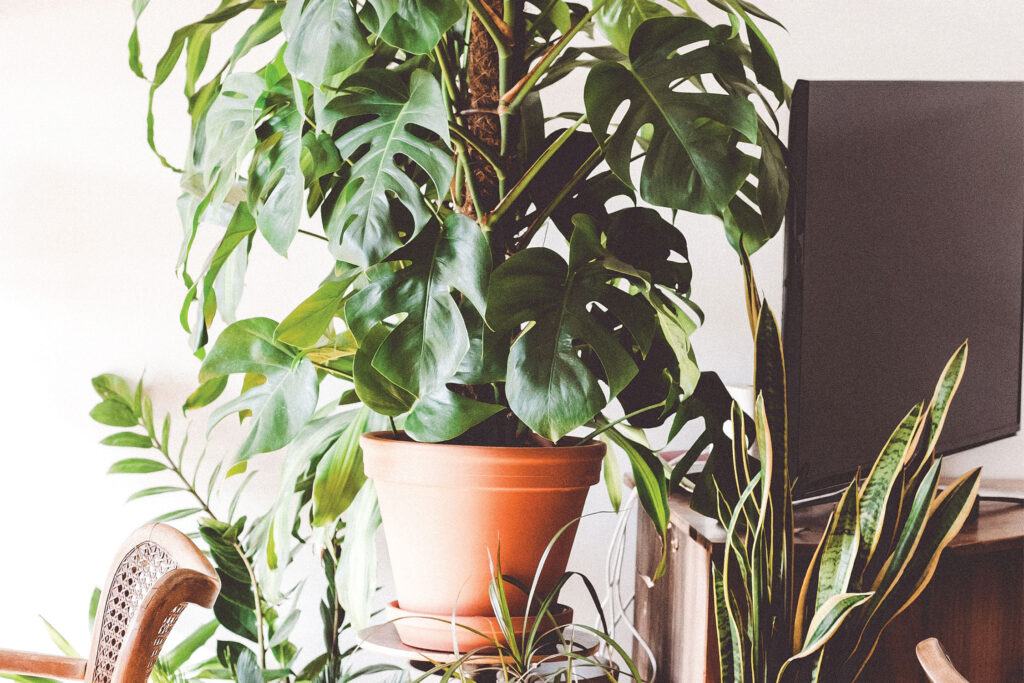Advertisement
New & Noteworthy
What you need to know this Jan/Feb about houseplants, dreams and burgers

Advertisement
Welcome to the jungalow: the best home office?
Houseplants are having a moment. Instagram is full of studio apartments studded with succulents. Fiddle leaf figs are taking over America’s living rooms.
In fact, the word “houseplants” doesn’t cut it anymore. This greenery isn’t just a small part of the decor. Blogger Justina Blakeney has popularized the word “jungalow” (“jungle” + “bungalow”) to describe homes that are as lush as your dream Costa Rica vacation. Others prefer the term “urban wilding.”
Working remotely is also having a moment. Forty-three percent of us work this way at least some of the time. That means that for many, home is the new office.
These trends are primed to dovetail. Why? Indoor plants have been shown to improve attention spans and boost productivity in office environments. Surrounding the desk in your den with greenery may be just the ticket to staying focused and finishing that report. (Rather than spending hours scrolling through #monsteramonday posts.)
Advertisement
The next big thing in health? Your dreams.
Widespread sleep deprivation is turning us into dream-deprived people, according to a recent review paper. And that could be a big deal.
Here’s the thing: it’s possible dream loss has a role in health problems we associate with sleep loss in general. Plus, dreaming seems to be the brain’s built-in therapist, helping us rehearse for anticipated challenges and process emotional events.
Sleep deprivation disproportionately affects rapid eye movement (REM) sleep, which is when dreaming is most vivid. REM sleep loss is associated with inflammation, memory problems and a higher risk of obesity.
Our bodies prioritize deeper, non-REM sleep earlier in the night, and we typically don’t enter prolonged REM sleep until the early morning. That’s why your alarm clock always seems to wake you up just as you’re about to join Beyoncé on stage.
So skip the alarm when you can and sleep a little more. Give Beyoncé’s other fans the duet they never knew they needed, and you may give your health a boost.
Advertisement
Advertisement
Plant-based burgers for athletes … and the A-list
 In the very first issue of alive, we wrote about the Beyond Burger: a patty that looks, cooks and tastes nearly identical to a beef burger, but is made from plants. We weren’t the only ones wowed by the burger and the company behind it, Beyond Meat.
In the very first issue of alive, we wrote about the Beyond Burger: a patty that looks, cooks and tastes nearly identical to a beef burger, but is made from plants. We weren’t the only ones wowed by the burger and the company behind it, Beyond Meat.
Actor and environmentalist Leonardo DiCaprio announced late last year he’s joining Beyond Meat as an advocate and investor, saying, “The company’s ability to create appealing, healthy meat directly from plants will go a long way in helping everyday consumers take action on climate change.”
Meanwhile, the Beyond Meat team has beefed up its bona fides by perfecting another plant-based burger: the Beast Burger. Beast 2.0 has been retooled for extra flavor and a more meat-like texture for 2018. It has 23 g of protein (even more than the 20 g in the Beyond Burger). Athletes take note: the Beast has been called “a nutrition shake on a bun.” It includes iron, vitamin B12 and other nutrients for muscle recovery.







